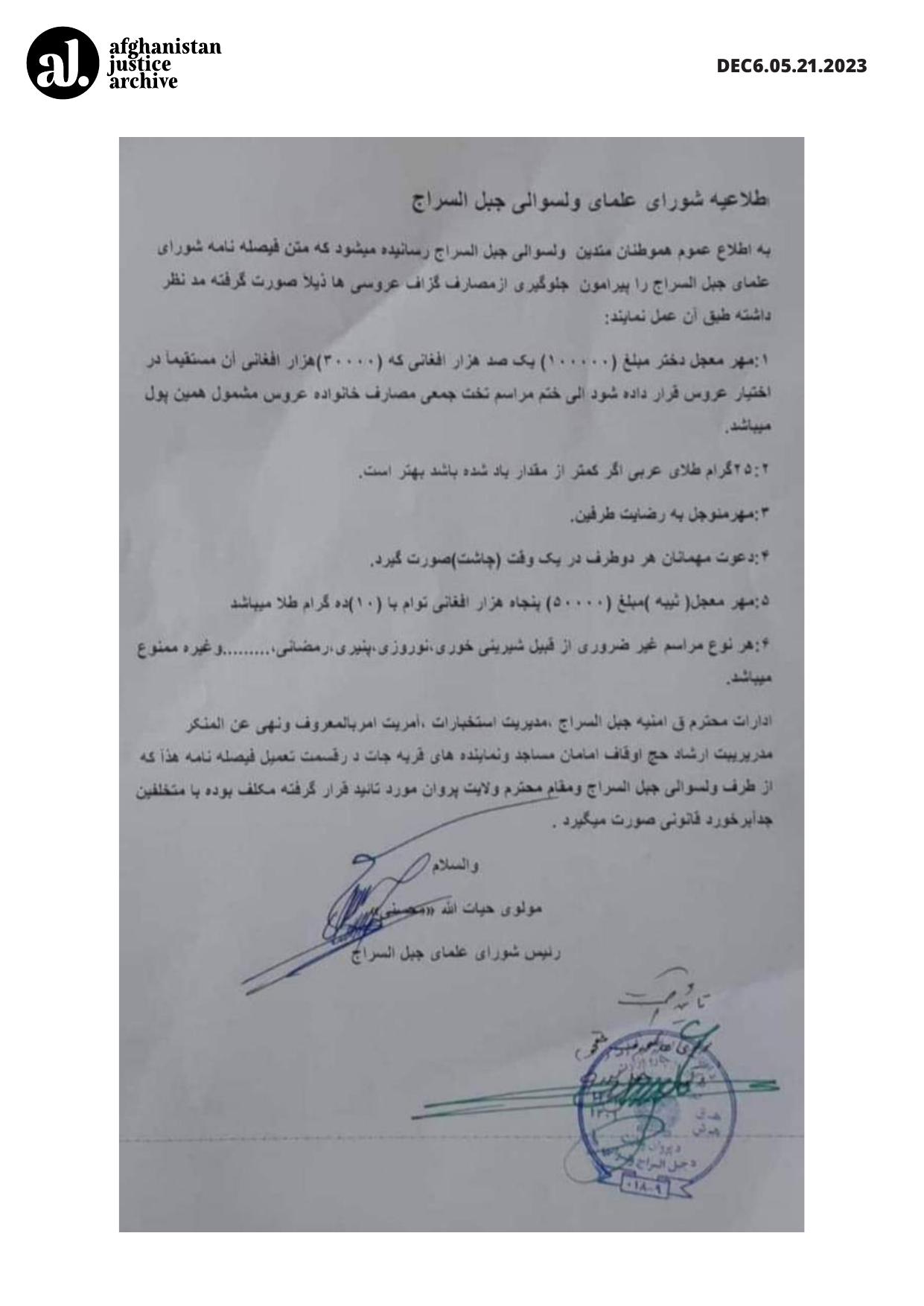Decree
Decree Translation
Notice from the Council of Religious Scholars of Jabal al-Siraj District
To all fellow devout citizens of Jabal al-Siraj District, it is hereby informed that the decree of the Council of Religious Scholars of Jabal al-Siraj regarding the prevention of excessive expenditures on weddings is as follows. Please abide by it accordingly:
1. The immediate dowry (mehr) for the bride shall be 100,000 Afghanis, of which 30,000 Afghanis shall be directly given to the bride. All family expenditures related to the wedding ceremony shall be covered from this amount until the conclusion of the collective wedding festivities.
2. It is preferable for the Arab gold used in the dowry to not exceed 25 grams.
3. The dowry (mehr) should be agreed upon by both parties.
4. Invitations for guests from both sides should occur simultaneously (at dinner).
5. The immediate dowry (mehr) shall amount to 50,000 Afghanis along with 10 grams of gold.
6. Any unnecessary ceremonies such as sweet-eating, Nowruz celebrations, cheese-eating, Ramadan-related events, etc., are strictly prohibited.
Respected institutions including Jabal al-Siraj Police Headquarters, Intelligence Directorate, Department of Promoting Virtue and Preventing Vice, Department of Guidance on Hajj and Endowments, mosque imams, and village representatives are obligated to enforce this decree approved by Jabal al-Siraj District Religious Scholars and the esteemed authorities of Parwan Province. Legal action will be taken separately against violators.
Peace be upon you,
Mawlawi Hayatullah Mohseni
Head of the Council of Religious Scholars of Jabal al-Siraj
This locally issued written decree is a religious-social order that reflects Taliban-era governance blending clerical authority with state enforcement. Though not a national policy, the involvement of police, intelligence, and vice authorities gives this decree coercive power within Jabal al-Siraj.
The order tightly regulates wedding costs, dowry standards, and cultural ceremonies, enforcing modesty and austerity under Islamic justification. It also prohibits widely practiced cultural events such as Nowruz and Ramadan gatherings, marking a crackdown on local tradition in favor of a purist religious agenda. This decree is a clear example of how local councils are being used to extend Taliban control over everyday life. It imposes gendered and economic restrictions, criminalizes traditional customs, and elevates religious conformity to state-enforced law, signaling the continued erosion of personal and cultural freedoms under Taliban rule.
